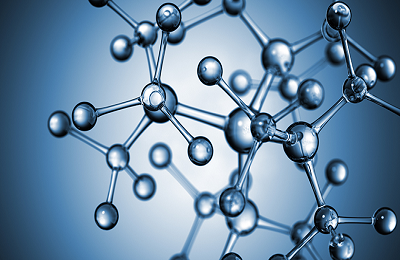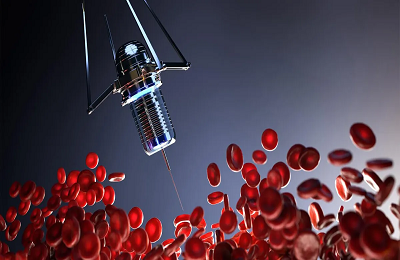Session 01: Advanced Materials Synthesis and Characterization
Advanced Materials Synthesis and Characterization involves developing new materials with tailored properties through precise chemical and physical synthesis methods, followed by detailed analysis to understand their structure, composition, and performance. This field enables innovations across sectors like electronics, energy, and healthcare by creating materials with enhanced strength, conductivity, and durability.
Session 02: Nanomaterials and Nanotechnology
Nanomaterials and Nanotechnology focus on designing, creating, and manipulating materials at the nanoscale (1-100 nanometers), where unique physical and chemical properties emerge. This field enables advancements in areas like medicine, electronics, and environmental science by developing materials with enhanced strength, reactivity, and conductivity, leading to innovative applications such as targeted drug delivery, high-performance electronics, and improved energy storage.
Session 03: Biomaterials and Biotechnology
Biomaterials and Biotechnology involve the development and application of materials designed to interact with biological systems for medical and therapeutic uses. Biomaterials are engineered for compatibility with the human body and are used in implants, tissue engineering, and drug delivery. Combined with biotechnology, which applies biological processes to create products and technologies, this field drives innovations in regenerative medicine, diagnostics, and personalized healthcare.
Session 04: Composite Materials
Composite Materials are engineered by combining two or more distinct materials to create a new material with enhanced properties, such as increased strength, lighter weight, or improved durability. Each component retains its own properties, while together, they offer superior performance for applications in industries like aerospace, automotive, and construction. Examples include carbon fiber composites and reinforced plastics, which are valued for their versatility and strength-to-weight ratio.
Session 05: Smart and Responsive Materials
Smart and Responsive Materials are advanced materials that adapt to changes in their environment, such as temperature, pressure, light, or pH. These materials can alter their properties dynamically, enabling applications in fields like medicine, electronics, and robotics. Examples include shape-memory alloys that return to their original shape, hydrogels that swell or shrink based on moisture levels, and polymers that change color in response to heat. Their responsiveness makes them ideal for innovations like self-healing materials, wearable sensors, and drug delivery systems.
Session 06: Electronic and Magnetic Materials
Electronic and Magnetic Materials are specialized materials designed to exhibit specific electrical or magnetic properties essential for modern technology. Electronic materials, such as semiconductors, conductors, and insulators, enable the functionality of electronic devices like computers, smartphones, and solar cells. Magnetic materials, including ferrites and magnetic alloys, are critical in data storage, motors, and magnetic sensors. These materials are foundational for advancements in electronics, energy storage, and communication technologies.
Session 07: Sustainable and Green Materials
Sustainable and Green Materials are materials developed with a focus on minimizing environmental impact, reducing resource consumption, and enhancing recyclability. These materials are often derived from renewable resources, designed for lower energy use, or made to be biodegradable or recyclable. Examples include bioplastics, recycled composites, and eco-friendly building materials. Sustainable and green materials play a crucial role in advancing eco-friendly technologies across sectors like construction, packaging, and manufacturing, supporting a transition toward a more sustainable economy.
Session 08: Materials for Energy Applications
Materials for Energy Applications are engineered to improve the efficiency, storage, and generation of energy in sustainable ways. These materials include advanced batteries, fuel cells, photovoltaics, and supercapacitors, which are essential for renewable energy systems, electric vehicles, and efficient power storage. By enhancing properties like conductivity, energy density, and durability, these materials support innovations in solar energy, wind power, energy storage, and sustainable energy solutions, helping to meet global energy demands and reduce environmental impact.
Session 09: Structural Materials and Engineering
Structural Materials and Engineering focuses on designing and optimizing materials that provide strength, durability, and stability in construction and mechanical applications. These materials—such as steel, concrete, and advanced alloys—are used to build infrastructure like buildings, bridges, and transportation systems. Structural engineering applies principles of mechanics and material science to ensure these materials meet safety, efficiency, and longevity standards, supporting reliable and resilient structures in industries like construction, aerospace, and automotive engineering.
Session 10: Emerging Trends in Materials Science
Emerging Trends in Materials Science include innovations like nanomaterials with unique properties, 2D materials (e.g., graphene) for advanced electronics, smart materials that respond to environmental changes, and sustainable materials made from renewable resources or designed for recyclability. Additionally,
advanced biomaterials are being developed for medical applications. These trends are driving breakthroughs in energy, healthcare, electronics, and manufacturing, focusing on performance, sustainability, and adaptability.
Session 11: Fundamentals of Nanotechnology
Fundamentals of Nanotechnology involve the study and manipulation of materials at the nanoscale (1-100 nanometers), where unique physical, chemical, and biological properties emerge. It combines principles from physics, chemistry, biology, and engineering to design and create nanoscale structures, devices, and systems. Applications of nanotechnology include electronics, medicine, energy, and environmental science, enabling innovations like drug delivery systems, stronger materials, and advanced sensors.
Session 12: Nanomaterials Synthesis and Characterization
Nanomaterials Synthesis and Characterization involves creating materials at the nanoscale with unique properties through methods like chemical vapor deposition, sol-gel processing, and nanoparticle assembly. After synthesis, characterization techniques such as electron microscopy, X-ray diffraction, and spectroscopy are used to analyze their structure, composition, and properties. This process is crucial for developing nanomaterials with tailored features for applications in electronics, medicine, energy storage, and more.
Session 13: Nanodevices and Nanosystems
Nanodevices and Nanosystems refer to small-scale devices and integrated systems built using nanomaterials and nanotechnology principles. These devices operate at the nanoscale and can perform tasks like sensing, data storage, or drug delivery with high precision and efficiency. Examples include nanosensors, nanoelectronics, and nanorobots, which are used in fields such as healthcare, environmental monitoring, and advanced electronics. Their small size and enhanced properties enable innovative solutions in various industries, offering improved performance and functionality.
Session 14: Nanomedicine and Bio-Nanotechnology
Nanomedicine and Bio-Nanotechnology involve the use of nanomaterials and nanodevices for medical applications. Nanomedicine focuses on using nanoparticles for drug delivery, diagnostics, imaging, and targeted therapy, improving treatment precision and reducing side effects. Bio-nanotechnology combines biological processes with nanotechnology to develop advanced healthcare solutions, such as nanosensors for disease detection and nanostructures for tissue engineering. These fields hold great promise for revolutionizing healthcare by enabling personalized medicine and more effective treatments.
Session 15: Nanotechnology in Energy and Environment
Nanotechnology in Energy and Environment focuses on using nanomaterials and nanodevices to improve energy efficiency and address environmental challenges. In energy, nanotechnology enhances solar cells, batteries, and fuel cells, leading to better energy storage, conversion, and sustainability. In the environment, nanomaterials are used for water purification, pollution control, and waste management, offering more efficient and cost-effective solutions. These innovations help reduce environmental impact while advancing renewable energy and sustainable practices.
Session 16: Nanotechnology in Electronics and Photonics
Nanotechnology in Electronics and Photonics involves the application of nanoscale materials and devices to improve electronic components and optical systems. In electronics, nanotechnology enhances the performance of transistors, memory storage, and flexible electronics, enabling faster, smaller, and more efficient devices. In photonics, it enables the development of advanced light-based technologies, such as high-speed communication systems, lasers, and light-emitting diodes (LEDs). These advancements are key to the next generation of electronics, improving data processing, energy efficiency, and optical communication.
Session 17: Nano-Bio Interface and Nanotoxicology
Nano-Bio Interface and Nanotoxicology explore the interactions between nanomaterials and biological systems, focusing on how nanoparticles affect living organisms. The nano-bio interface studies how nanomaterials interact with cells, tissues, and biomolecules, which is crucial for applications in medicine and biotechnology. Nanotoxicology assesses the potential toxic effects of nanomaterials, evaluating their safety for human health and the environment. Understanding these aspects is essential for developing safe nanotechnology-based products and ensuring their responsible use in healthcare and industry.
Session 18: Nanofabrication Techniques
Nanofabrication Techniques involve methods used to create structures, devices, or materials at the nanoscale (1-100 nanometers). These techniques include top-down approaches like photolithography and electron beam lithography, which pattern materials to create nanoscale features, and bottom-up approaches like chemical vapor deposition and self-assembly, which build structures atom by atom or molecule by molecule. Nanofabrication is crucial for manufacturing advanced devices in electronics, medicine, and materials science, enabling innovations like nanosensors, microchips, and nanostructured coatings.
Session 19: Nanomaterials for Advanced Applications
Nanomaterials for Advanced Applications refer to materials engineered at the nanoscale to exhibit unique properties, such as enhanced strength, conductivity, or reactivity. These materials are used in a variety of cutting-edge fields, including electronics, medicine, energy storage, and environmental protection. Examples include nanocomposites for stronger, lighter materials, nanostructured catalysts for more efficient chemical reactions, and nanoparticles for targeted drug delivery. Their unique properties enable innovations and improvements across industries, offering advanced solutions to complex challenges.
Session 20: Regulatory and Societal Aspects of Nanotechnology
Regulatory and Societal Aspects of Nanotechnology focus on the ethical, safety, and regulatory challenges associated with the development and use of nanomaterials and nanodevices. This includes establishing guidelines for testing and labeling nanomaterials, assessing their environmental and health impacts, and ensuring public safety. Societal concerns also involve the potential for misuse, privacy issues, and equity in access to nanotechnology innovations. Addressing these aspects is crucial for the responsible advancement of nanotechnology, balancing innovation with safety and public trust.






